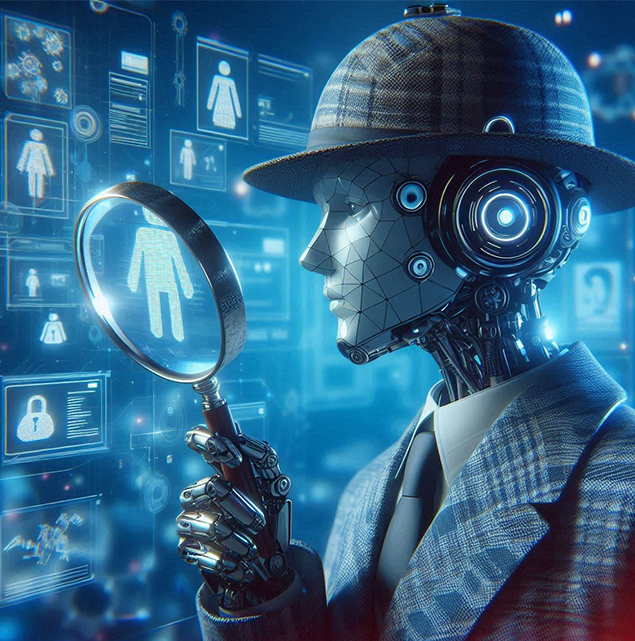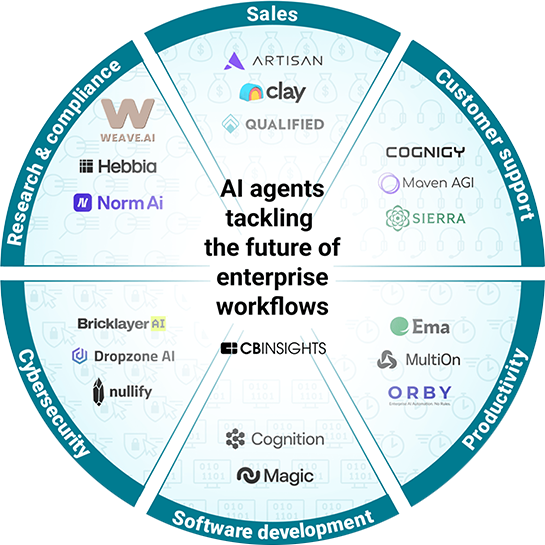Going Beyond Bots with Autonomous “Special” AI Agents
In the ever-evolving landscape of artificial intelligence, traditional GenAI, use-case specific solutions have mainly focused on delivering streamlined, “vanilla”, results. Typically, GenAI based bots review documents, often generating summaries that are uniform, devoid of detailed context, lack proper citations, and are prone to errors such as hallucinations. As the AI journey progresses, it is evident that there is a pressing need to advance beyond these limitations to more sophisticated, autonomous AI agents.
While large language model (LLM) powered bots have demonstrated limited contextual-based reasoning, and the capability to independently execute tasks, the emergence of autonomous AI agents marks a transformative evolution.
Unlike traditional chatbots & copilots, these “Special” AI agents are designed to investigate and identify risks, trends, and tendencies to aid real-time decision making and tackle complex tasks on a user’s behalf.

The power of autonomous AI agents lies in their ability to go well beyond mere task execution. With the ability to ingest real-time, dynamic data, moving AI technology from knowledge-based to action-based. AI agents can act as skilled virtual co-workers in a more natural, seamless fashion. The agents are engineered to understand context, derive meaningful insights, and apply learned knowledge dynamically to solve complex problems, and make real-time recommendations.
This paradigm shift is exemplified by solutions like nullify.ai for cyber security, and Weave.AI for decision and risk management. Analysts using Weave.ai can select from existing agents or craft custom autonomous agents for specific functions like due diligence, regulatory compliance or anti-money laundering (AML) detection. For due diligence, autonomous AI agents can analyze vast amounts of unstructured and structured data, identify patterns and gaps, summarize content into a SWOT analysis, provide key talking points, and recommend strategic decisions. Further, they enable the orchestration of multiple agents to perform intricate analysis and correlations. These orchestrated, intelligent operations enables the discovery of “unknown unknowns”, and their associated severity; ultimately providing actionable insights and verifiability.
OpenAI’s CEO, Sam Altman, has aptly described agents as
“AI’s killer function.”
This notion underscores the transformative impact that autonomous, self-learning “Special” AI agents are poised to have across various industries, going beyond process automation to transform operations or even enable new business models.
The growth of AI agents has been remarkable over the last year. According to a recent survey by Capgemini, 10% of organizations are already using AI agents, and >50% plan to use them withing the next year. By 2028, 82% of organizations expect to integrate AI agents into their operations.
Recent research by CB Insights depicts where the early momentum of AI Agents is. Predominately initial agentic solutions have focused on functions like sales, marketing, customer support and software development. Where virtual, Business Development Representatives compliment their human counterparts and take on many traditional business development functions, yielding greater engagement and conversion rates. Salesforce for example, has launched its Agentforce technology, which includes AI agents designed to enhance sales and service operations.

Another use-case example is in healthcare, where autonomous AI agents could analyze patient records, research relevant papers, and clinical trial data to provide doctors with comprehensive, context-rich insights for better diagnosis and treatment.
In addition to healthcare, one of the sectors with the greatest potential impact is financial services. Where solutions can engage agents to monitor market, geopolitical, regulatory, and climate trends, as well as comprehensively perform risk assessments with unparalleled precision.
“In today’s treacherous risk, regulatory, and competitive landscape, decision and risk management must be data-driven, proactive, real-time, and holistic. Traditional GenAI approaches fall short in dealing with unknown unknowns and complex context-rich workflows. Our agentic AI-powered context-aware decision management platform cuts through this complexity, offering hyper-efficient agents that provide 360-degree analysis, identify opportunities and risks, and guide decision-making with verifiable recommendations.”
– Nosa Omoigui, CEO & Founder of Weave.AI
Moreover, autonomous AI agents create a collaborative synergy between humans and machines, augmenting human capabilities by handling tedious, data-intensive tasks, allowing professionals to focus more time on client-facing and strategic initiatives. This collaboration will transform research and development, where the ability to quickly process and analyze data, and ensure accuracy and verifiability, will accelerate decision-making and innovation.
“Special” AI agents can manage multiplicity and complexity – because they are based on foundation models, and for leading agentic solutions, knowledge graph structures, they are not dependent on predefined, linear workflows. This enables real-time flexibility and adaptation for use cases with high variability like credit-risk assessment or portfolio risk management. Agents can also work with existing software tools and platforms in an integrated fashion to communicate across a broader ecosystem. Their foundation models learn how to effectively interact with existing systems utilizing natural language.

Developing autonomous “Special” AI agents involves seven key steps:
- Define Objectives: clearly outline the goals for the AI “Special” agent. Rethink business processes, including specific problems to solve, insights to capture and desired outcomes (KPIs).
- Data Collection & Aggregation: capture relevant data that the AI agent will use to learn and make decisions. This data should be a combination of structured and unstructured data, as well as historical and dynamic data.
- Model Selection & Training: select or create appropriate AI models and algorithms that will power the agent and train the models.
- Testing & Validation: Test the AI agent in real-world scenarios to ensure it performs as desired. This should involve validating the agent’s accuracy, verifiability, and reliability.
- Deployment: Deploy the AI agent into operations where it will perform its designated function and tasks. This should involve integration with existing systems, and dynamic data feeds, ensuring it can operate autonomously, and in coordination with humans & other agents.
- Human Oversight & Optimization: continuously monitor the AI agent’s performance, enable self-learning, and adjust as necessary. This could include updating the models with new data to further improve the agent’s capabilities over time.
- User Training & Change Management: provide training and support to users who will interact with the AI agents via natural language much like they would direct an employee. Ensure users understand how to optimize utilization of the agents’ capabilities and take advantage of newly enabled insights effectively. Employ change management to ensure the AI capabilities and outcomes align with your company’s policies, values, and goals.
By following these steps to develop bespoke agent-based solutions, and engaging existing purpose-built AI agentic solutions, organizations can accelerate their adoption of “Special” AI agents to transform operations, improve customer experiences, lower enterprise risk, and increase enterprise value.
AI agents are bringing us one step closer to unlocking artificial intelligence’s full potential. As we continue to harness the power of these AI agents, we will unlock new dimensions of insight, efficiency, and innovation across various sectors and job functions. “Special” AI agents will become integral to our daily lives, shaping a smarter, more connected world.
ABOUT THE AUTHOR
Chad Holmes is SAIGILITY Chief Growth Officer and leads the Human-Centered AI (HC-AI) practice focusing on the intersection of AI-Empowerment, Human Experience (HX) Design, and Digital Transformation. SAIGILITY collaborates with clients to shape a future where technology enhances human life, addressing pressing challenges with intelligence that both augments and automates human abilities. chad@nivrt.com
Sage (as an adjective):
showing good judgment.
Agility
Contact Info

